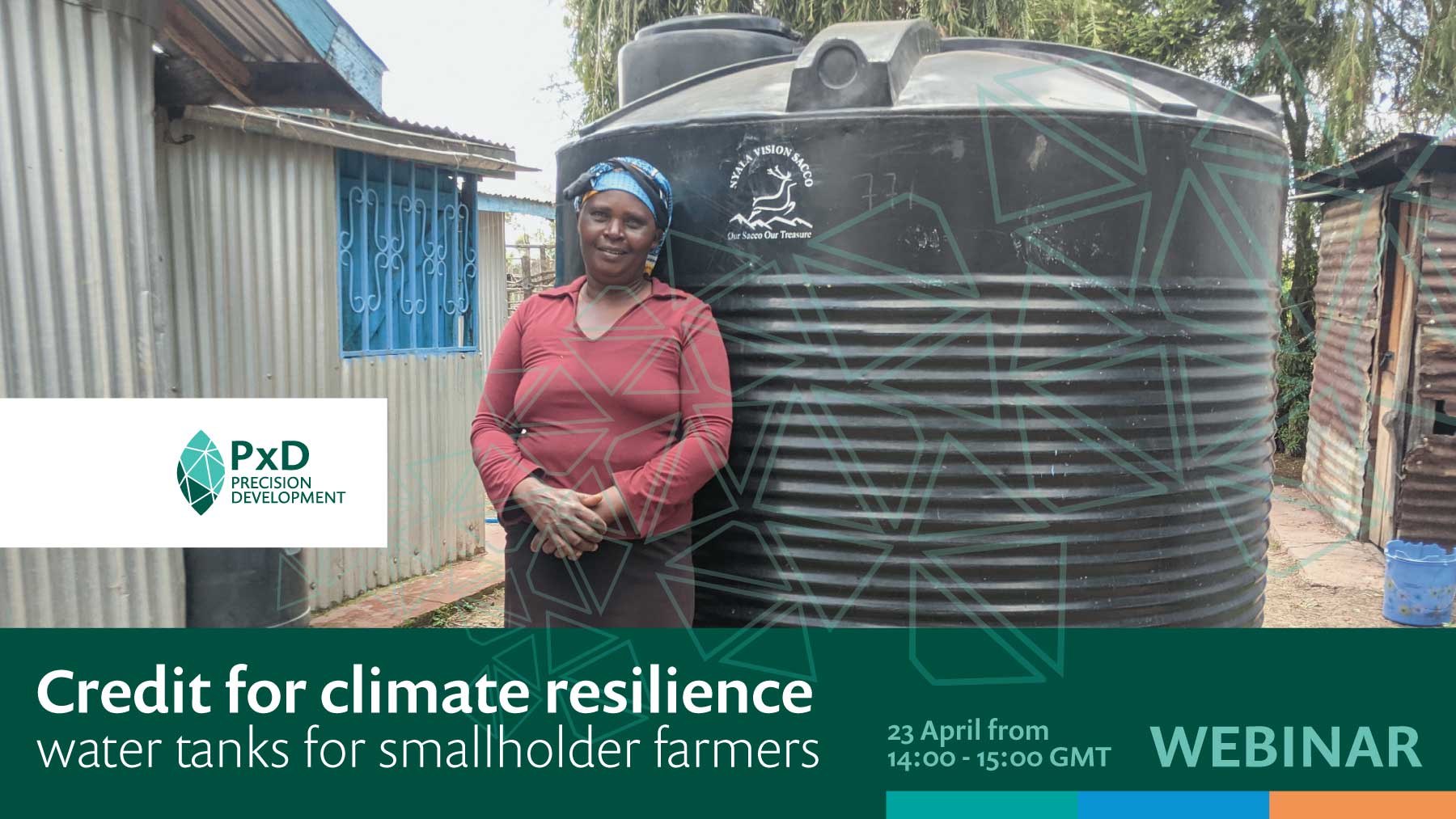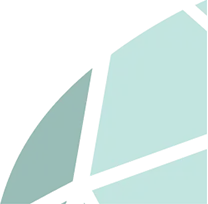- Impact
- Home
- Our Initiative
- Webinar: Credit for climate resilience – water tanks for smallholder farmers
Webinar: Credit for climate resilience – water tanks for smallholder farmers
Precision Development (PxD) hosted a webinar on 23rd April 2024 on the topic – “Credit for Climate Resilience – Water Tanks for Smallholder Farmers”

Overview
Paul Nuthu, CEO of Kwikas DT SACCO, Joshua W. Deutschmann, Evidence Synthesis and Research Lead at the Development Innovation Lab, University of Chicago, Niriksha Shetty, CEO of PxD, and Abraham Salomon, Senior Program Manager, PxD, discussed the challenges of water insecurity faced by smallholder farmers. They also highlighted how water tank loans are positively impacting families’ livelihoods and education, along with PxD’s efforts to scale this solution across Kenya and beyond.
Please see the farmer testimonials shared during the webinar, in addition to the webinar recording and presentation below.
Farmer testimonials: Regina & Ruth – PxD ACL initiative Kenya
Webinar recording: Credit for climate resilience – water tanks for smallholder farmers
Presentation Slides: PxD ACL Webinar April 2024
For more information about partnering with PxD or specific initiatives in the webinar, please contact development@precisiondev.org.
Since 2010, the Nyala dairy cooperative in Kenya has been providing loans for water tanks to smallholder farmer through its associated savings and credit cooperative (SACCO), collaborating with a group of researchers – including Michael Kremer, a co-recipient of the 2019 Nobel Prize for Economics, and a co-founder of Precision Development. The dairy farmers repay the loan through a deduction from their milk income which they receive from the dairy. Because milk production is increased when farmers have a water tank, this gives the farmer enough additional income to pay off the loans within 2-3 years.
These loans are unusual because the borrower makes only a minimum deposit, is not required to have saved money at the cooperative, and they are not required to offer guarantors. Instead, the loan is secured against the value of the water tank itself, which is possible because the tank is a long-lasting asset which remains productive for 30 years and is easy to repossess in the rare case of loan default. This change in the loan terms led to a huge increase in uptake – from less than 3% uptake under normal loan conditions to 42% uptake when the loans use this innovative financing structure. Defaults did not increase at all with moderate deposit requirements, and even in the case with the smallest deposit requirement, the repossession rate was just 0.7%.
The effect of these loans for water tanks is to increase households’ dairy production by 20-31%, improve health and increase school attendance. This increase in buying power makes a real difference to the lives of some of the poorest families and significantly increases resilience to climate change. Because it leads directly to higher milk income, the tank pays for itself quickly; but the low risk, low cost loans are not yet widely available.
Over one thousand water tank loans were provided during the initial research with the Nyala dairy cooperative; since then, Nyala dairy has provided a further four thousand loans, and this has become a popular and successful part of the portfolio of services they offer. Precision Development and the Development Innovation Lab (DIL) at the University of Chicago are working together to test this approach in two other dairies in Kenya’s rift valley. So far, these dairies are showing positive, preliminary results.
Our goal is to make these loans available to smallholder dairy farmers who do not have a reliable water supply in Kenya, across East Africa, and ultimately across the world. Though the loan design is working well, we are testing whether it can be improved further. We are learning about what support dairy cooperatives and associated financial institutions need to get up and running to provide these loans, and what support the farmers themselves need. And we are learning whether the dairies are constrained from making loans by lack of access to capital and, if so, how this constraint can be alleviated, for example by crowding in more capital.
This is a high impact, cost-effective and scalable intervention targeted on farmers living in extreme poverty. The tank pays for itself – but for more people to benefit we need the idea to spread far and wide. Please join us for a discussion about what we have learned so far, and how we are approaching the challenge of bringing the benefits of this innovation to millions of people around the world.
For more information about partnering with PxD or specific initiatives in the webinar, please contact development@precisiondev.org
Make an Impact Today
Support our mission to empower farmers and scale sustainable innovations. We estimate that for every $1 invested in PxD’s services, we generate additional agricultural profits of $9 - $15. Your contribution can create lasting change for smallholder farmers worldwide.
 We use cookies to ensure that we give you the best experience on our website. If you continue to use this site we will assume that you are happy with it.Ok
We use cookies to ensure that we give you the best experience on our website. If you continue to use this site we will assume that you are happy with it.Ok